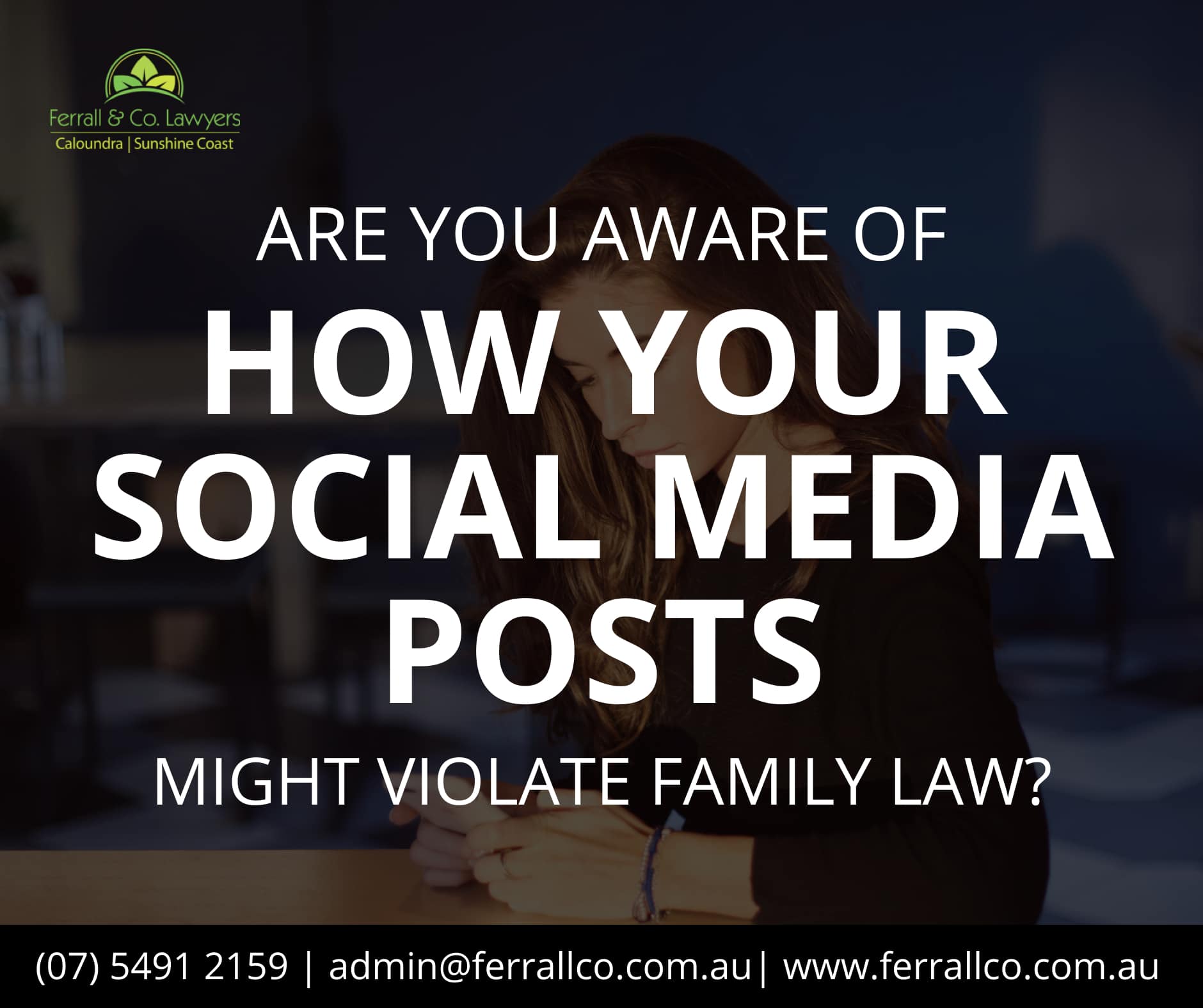In today’s digital age, the intersection of family law and social media is becoming increasingly prominent. With the rise of social media platforms, family court proceedings are witnessing a surge in evidence sourced from online interactions. But what does the law say about this? Let’s delve deeper.
Key Insights 
- The intersection of family law and social media is growing. Online interactions are increasingly used as evidence in Family Court.
- Section 121 of the Family Law Act in Australia prohibits sharing details of court proceedings that identify involved parties, with breaches leading to severe penalties.
- Social media posts, comments, and messages can be evidence in family law, revealing contradictions in claims made in Court.
- Case studies highlight the dangers of social media.
- Tips for handling social accounts during family law cases include securing accounts, thinking before posting, not deleting posts, and seeking legal advice.
- Social media’s influence extends beyond family law, affecting areas like intellectual property and employment law, emphasising the need for users to be cautious and informed.
Understanding Section 121 of the Family Law Act
Section 121 of the Family Law Act is pivotal when discussing social media law in Australia. This section prohibits the publication of any court proceedings or related documents that could identify the parties involved. Violating this can lead to severe consequences, including hefty fines or imprisonment. Users need to be acutely aware of this provision. Sharing details about a family law case can inadvertently breach this law.
It Can be used as Evidence in Family Court
Social media platforms have become a goldmine for evidence in family law cases. Posts, comments, and private messages can establish behaviour patterns, prove misleading statements, or highlight defamatory claims. For example, a person might claim financial hardship in Court but showcase lavish spending on social accounts. Such contradictions can be detrimental to one’s case.

The Perils of Social Media in Family Law
Social media can cause severe legal issues during a family law case. Let’s look at a couple of case studies demonstrating how its usage can affect your family law matter.
Case study one
A father argued his inability to afford child support, citing financial hardships. However, his claims were starkly contradicted by his own social media activity. Public posts showcased him enjoying luxurious holidays and flaunting recent purchases of high-end items. These posts painted a picture of a lavish lifestyle, inconsistent with his claims in Court.
The mother’s legal team presented these posts as evidence. They argued that the father had sufficient funds and was deliberately misleading the Court. The judge considered these posts, leading to a ruling against the father. This case underscores the importance of prudence in social media use, especially during legal proceedings.
 Case study two
Case study two
In a parenting dispute, a parent argued for increased access to their children, claiming limited interaction. However, their social media told a different story. Publicly shared videos depicted the parent frequently partying and engaging in illegal drug use.
These posts were brought to the Court’s attention. Not only did they face potential legal repercussions for drug use, but the videos undermined their plea for more parental time. The Court viewed this behaviour as evidence of an unstable environment and potential endangerment to the children.
The outcome was twofold. The parent’s chances of gaining increased access were diminished, and they faced legal scrutiny for their actions. This case highlights the profound impact of one’s online presence, especially when it contradicts claims made in legal settings.

Tips for Navigating Social Media During a Family Law Case
- Secure Your Accounts: Ensure your social media accounts are set to private. This limits access to your posts, reducing the risk of unintended consequences.
- Think Before You Post: Always be careful about what you post. Avoid making misleading or defamatory statements that can be used against you.
- Don’t Delete Posts: Deleting posts can be seen as destroying evidence. Remember, deleted posts can often be recovered and used in Court.
- Seek Legal Advice: If in doubt, consult a lawyer about your social media use. They can provide guidance on potential pitfalls and how to avoid them.
The Wider Implications of Social Media Law
Beyond family law, social media laws touch various sectors. These include intellectual property, employment law, and business regulations. Users must respect copyrighted material and avoid sharing confidential information. Also, be wary of making defamatory statements.
This shows that social media is a major innovation that’s had a broad effect on society. It has ramifications in many fields of law which can impact family relations.
Conclusion
The fusion of family law and social media is a testament to the evolving nature of our legal system. As social media users, it’s crucial to be informed and cautious. The digital footprint we leave can have lasting implications. This is especially true in sensitive areas like Family Court proceedings.
The information provided here is general and not meant to replace personalised advice. It doesn’t consider your specific situation, so it shouldn’t be the sole basis for any decisions. We disclaim any loss or damage from relying solely on this information. Always consult a legal or financial professional for advice tailored to your circumstances before making any financial or legal decisions.






